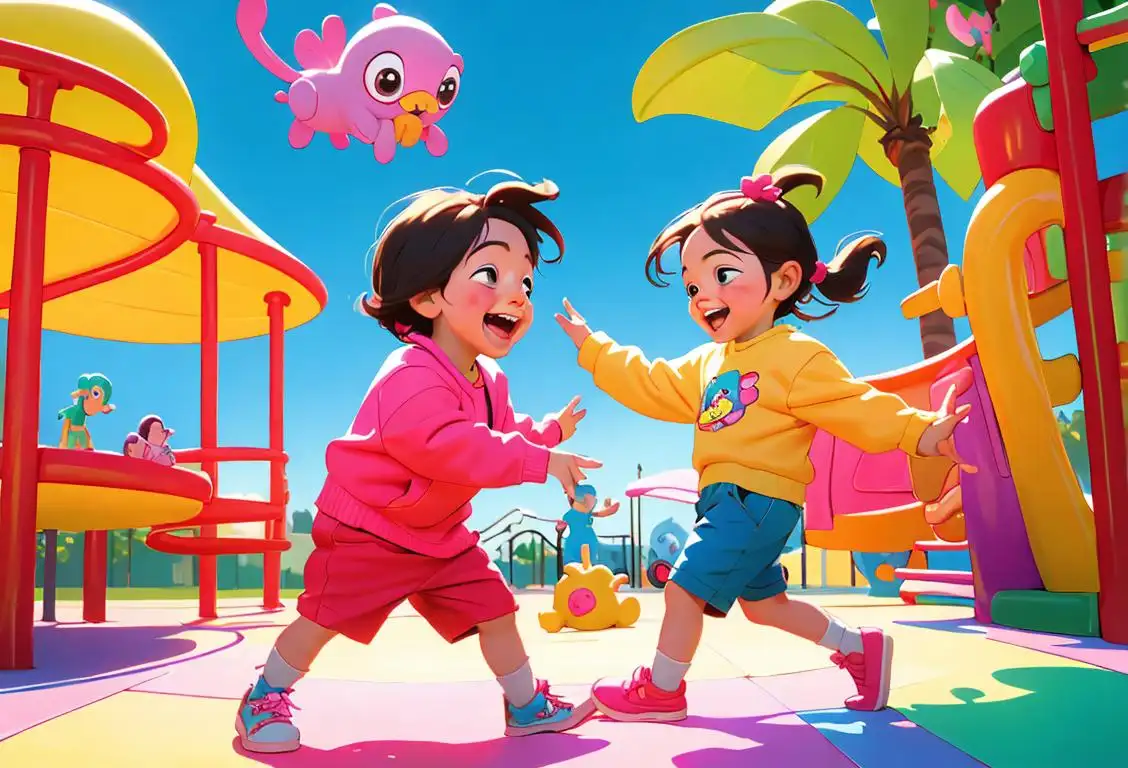National Child Day

Buckle up, dear readers, as we embark on an adventure through the land of childhood memories and juvenile celebration. If you've ever asked, 'When can I celebrate children for simply being their awesome selves?' then brace yourself. The answer is National Child Day, and it is more delightful, and complex, than you might think.
When is Child Day?
It's national child day on the 20th November.
A Grand Fiesta for our Future Champions
National Child Day is a day dedicated to celebrating the wonder of youth, marked by 5877 online mentions according to our WhatNationalDayIsIt detectives. Each mention indicates a moment where someone acknowledged, 'Children are the future – and the future starts now.' Remember when you were a child, dreaming of becoming an adult? Well, this day gives the little humans in our life a reason to celebrate their present age, whilst giving us adults a peek into our past.
The Day We All Stood Still: November 20, 2016
This particular day in Internet history exploded with individuals across the 'www' universe praising National Child Day. Might I add, the moment was of such joy, even Facebook statuses from your aunt's third cousin twice removed referred to this celebration. However, it is not only about online posts, but also about the awareness it spreads - reminding us that children are not only cute and innocent, but they are also the torchbearers of our legacy.
Popularity Over Time
National Child Day saw its maximum mentions on November 20, 2016. Guess the 'young' Internet felt alike parents, bursting with pride and adulation on this particular day. The takeaway? Embrace the little ones, their hopes, their dreams, their silliness - every day, and especially on National Child Day. Because trust me, they'll grow up faster than you can keep up with the new social media platforms they use!
History behind the term 'Child'
Old English period (450-1100 AD)
Origin of the term 'Child'
The word 'child' has its roots in Old English and is derived from the Old English word 'cild', which means a person who is not yet an adult. It is believed to have evolved from the West Germanic word 'kiltham', which referred to the offspring of human parents.
Middle English period (1100-1500 AD)
Expanding meaning of 'Child'
In the Middle English period, the term 'child' started to encompass a broader range of meanings. It not only referred to a person before reaching adulthood but also gained additional connotations relating to filial relationships and kinship. 'Child' was used to denote a son or a daughter, emphasizing the familial bond within a household.
17th Century
Emergence of childhood as a distinct phase
During the 17th century, the concept of childhood began to be perceived as a distinct phase of life. This marked a significant shift in societal attitudes towards children. 'Child' became associated with innocence, vulnerability, and the need for protection. The notion of childhood as a separate period of life paved the way for the development of child-specific laws, education, and literature.
18th Century
Rise of child labor
The 18th century witnessed the rise of child labor as industrialization took hold in many countries. Unfortunately, the term 'child' became intertwined with exploitation and harsh working conditions for many young individuals. Children were frequently employed in dangerous factories, mines, and mills, leading to public outcry and the eventual push for labor reforms.
20th Century
Advocacy for children's rights
In the 20th century, increased awareness of children's rights and well-being led to significant advancements in child protection and welfare. Organizations such as UNICEF played a crucial role in advocating for children's rights across the globe. The term 'child' became synonymous with the notion of rights, education, healthcare, and nurturing, highlighting the recognition of children as individuals with specific needs and entitlements.
Did you know?
Did you know? The highest online mentions for National Child Day were on November 20, 2016. This must've been when every kid became a social media star for a day!Tagged
awareness fun loved onesFirst identified
18th June 2015Most mentioned on
20th November 2016Total mentions
5877Other days
Compliment Day
Cheese Pizza Day
Pumpkin Day
Medal Of Honor Day
Guac Day
Foundation Day
Suicide Prevention Day
Memorial Day
Cancer Survivors Day
Bacon Day









